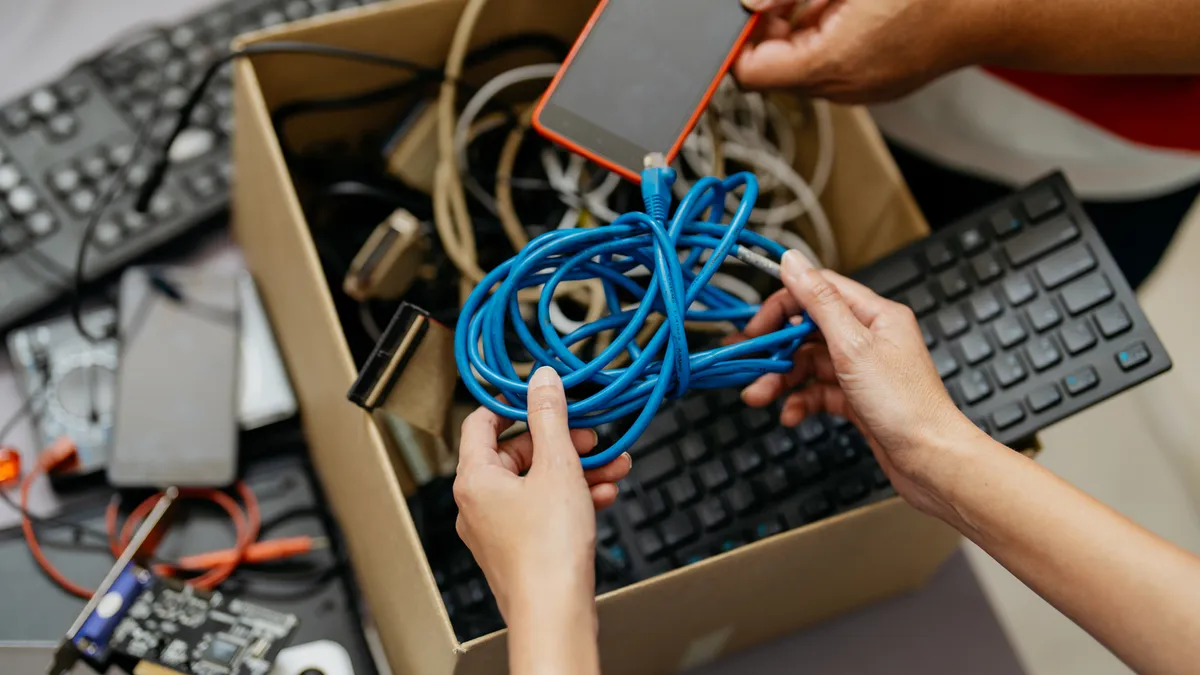Oregon Gov. Tina Kotek signed an update to the state’s electronics EPR program into law last week, meant to stabilize collection infrastructure and make collection programs more accessible.
HB 3220 refreshes Oregon’s 14-year-old E-Cycles Program by adding more covered devices and updating requirements for collection site locations. New items accepted in the extended producer responsibility program starting in 2026 include scanners, DVD players, VCRs, music players, game consoles, digital converter boxes, cable receivers, routers, modems and small servers. The program already accepts computers, monitors, TVs, printers, keyboards and mice.
The law will also allow for multiple producer responsibility organizations. The update eliminates a state contractor program that previously coordinated collection and recycling responsibilities on behalf of many original equipment manufacturers. PROs will be required to sign contracts with operators of MRFs, landfills or transfer stations that want to become a collection site for the program.
Cities and counties must offer a minimum number of sites based on population, and the law also calls for PROs to “provide convenient and equitable service throughout the state, including to rural areas and minority, lower-income and other historically underserved populations.”
The state Department of Environmental Quality contracted with the Product Stewardship Institute to conduct outreach to build consensus on the bill. The legislation, sponsored by state Rep. Pam Marsh, received significant support in the legislature, as well as from stakeholders including Republic Services, WM, Recology and the Oregon Refuse and Recycling Association. Haulers applauded HB 3220 for allowing permitted solid waste collection sites to opt in to the program and requiring advance public notice when a specific collection site closes.
Andrea Fogue, ORRA’s governmental affairs director, testified that changes were needed to prevent rural areas from seeing collection site disruptions. The PRO is required to achieve certain recycling weight targets each year, and some sites closed in 2021 and 2022 because they had exceeded their collection target and needed to stay within operations budget. Republic Services said these closures left haulers “to handle much more material than existing sites could reasonably be expected to collect.” Rep. Marsh helped offer a “short term solution” in 2022, Fogue said, but haulers see HB 3220 as a more stable long-term fix.
In 2022, the program collected 12.4 million pounds of electronic devices for recycling and 39,131 devices for reuse, according to an email from DEQ. The agency has set the 2023 collection determination at 14.2 million pounds.















